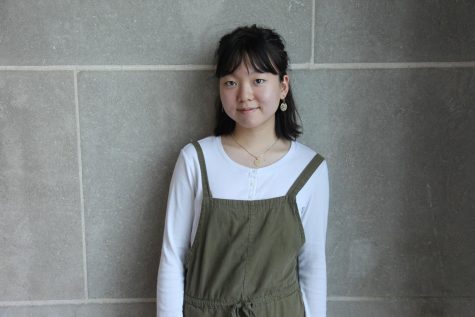Put the work in
October 29, 2018
“Yoo Young.” I heard my name being called sternly from across the lunch table, and I stopped in my tracks. In eighth grade, I had been introduced to concepts of racism and race issues in society through social media and the Internet, and I always had a new topic to talk about at lunch.
That day, I had been complaining about the whitewashing of characters in dystopian novels and its negative impact on the mentality of young people of color. As I listed off all the popular dystopian novels at the time, comparing the number of characters of color compared to white characters, I was on a roll. I analyzed “The Hunger Games,” “Divergent” and “The Selection.” No novel was safe from my criticism.
But as I was about to go into Harry Potter, my friend interrupted me in a gentle, yet patronizing tone.
“Not all white people are out to get you.” I looked up to see my friend smirk at me. “We don’t all hate blacks and Asians, so maybe you should just calm down.”
And that was it. With those words, I was the weird one, made to look as if I was spreading my anti-white agenda yet again. I looked around the lunch table to see my other friends, who were all white, staring down at their lunches as a shadow of discomfort fell across our table.
This was a common occurrence. I was the sensitive and aggressive friend who constantly brought up topics of race and how I felt about it. To my white friends, the things I wanted to talk about were simply uncomfortable. But to me, these conversations were necessary.
Race has always been a big part of my life. Growing up Asian in a predominantly white neighborhood meant years of feeling like my race was the only thing that defined me.
I was the “Asian that drew well” and the “Asian that sang well.” It was the first thing people saw in me, and the expectations that came with being Asian were ones I believed I couldn’t fulfill.
I remember in sixth grade I was ridiculed by my friend for getting a B on a math test and was called a “dumb Asian.” I have always been conscious of my race and how I felt that my existence in society was marked by an asterisk.
It wasn’t until I started researching and learning more about the systematic elements of race and oppression that I started making sense of my experiences and how they fit into a bigger picture. Talking about race solidified my existence in the world, but to my friends it was threatening.
And I can say with all sincerity: I get it.
Of course when one grows up unexposed and uninformed on an issue, it has little concern with their life. Any form of criticism of the system that serves as a benefit to them will be interpreted as a personal attack. I understand.
I can imagine how it feels living in a changing society where suddenly it feels as if fingers are being pointed at you for something you never did. You’ve never said a racial slur, you’ve never discriminated against someone because of their skin color, even some of your best friends are people of color, but you’re still told you contribute to a racist society.
When you try to contribute to a conversation on race, you’re told your opinion is less legitimate because you’re white.
So when this happens to you, the only thing you feel that you can do is defend yourself, claiming that you’re not a racist, and saying so is a racist act in itself.
To the people who relate to this, I’m telling you that I’ve taken the time to see the situation through your perspective and can sympathize with your concerns.
All I’m asking is that you do the same for me and all people of color.
When listening to a friend complain about lack of representation in novels and movies, I ask that before you tell them to calm down, that you take the time to imagine what it’s like growing up without seeing a single main character that looks like you. Imagine thinking that your identity was secondary to your race because you never saw yourself in anyone on TV.
When you see protests stating “Black Lives Matter,” before you quickly fire back by saying, “All Live Matter” or “Blue Lives Matter,” imagine what it would be like to fear the very people that are supposed to protect you. Maybe you’ll be able to see how “All Lives Matter” is a paradox in a society where all lives are not being treated as if they matter.
Making yourself the victim puts up soundproof barriers that cut off the voices that need to be heard. So instead of trying to defend yourself, try listening to these voices with your mouth closed and your ears open.
Take a step back, listen, and imagine. As you do so, ask yourself why you never have to go through these experiences.







